team
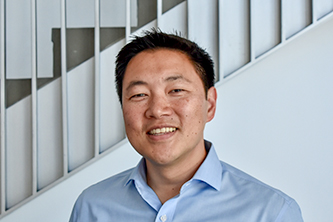
Winston Chiong, MD PhD
Principal Investigatorwinston.chiong (at) ucsf.edu
https://profiles.ucsf.edu/winston.chiong
Scholar Citations
I have several roles at UCSF, which (I hope) inform one another as each of them involves challenges in thinking about the brain and important decisions that patients, caregivers, and clinicians face. I am a behavioral neurologist, and my clinical practice focuses on Alzheimer’s disease, frontotemporal dementia, and other cognitive disorders of aging. I am also a cognitive neuroscientist, applying observations from clinic to investigate why patients like mine are vulnerable to making bad decisions. Furthermore, I am a neuroethicist, working alongside other clinicians, researchers, and policymakers to address the ethical and social implications of changes in decision-making due to altered brain function.
I studied philosophy as an undergraduate at UC Berkeley. During medical school here at UCSF, I took a leave to pursue a PhD in philosophy at NYU, where I studied with Thomas Nagel and Derek Parfit. After residency training in neurology back at UCSF, I did a combined fellowship in cognitive neuroscience and neuroimaging with Mark D’Esposito at UC Berkeley and in behavioral neurology here at the UCSF Memory and Aging Center.
Alongside my clinical and research work, I am the Director of UCSF Bioethics and a member of the the UCSF Medical Center Ethics Committee. Beyond UCSF, I serve on the Neuroethics Working Group of the National Institutes of Health BRAIN (Brain Research through Advancing Innovative Neurotechnologies) Multi-Council Working Group, the American Academy of Neurology’s Ethics, Law and Humanities Committee, and the Board of Directors of the International Neuroethics Society. I am also a research mentor in the Association of American Medical Colleges’ Career Development Program for Maximizing Opportunities for Scientific and Academic Independent Careers (MOSAIC) Scholars (K99/R00) from diverse backgrounds.
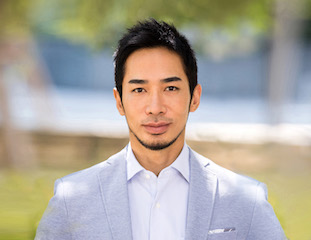
Pongpat Putthinun, PhD
Postdocpongpat.putthinun (at) ucsf.edu
Having lived for extended periods in Thailand, Japan, and the United States, I gained insight into the diverse healthcare practices and attitudes toward dementia and the disparate resources for diagnosis, treatment and care across borders and demographic groups. I want to use my background in health economics and the expertise I acquire at UCSF Memory and Aging Center to contribute to the advancement of brain health equity through enhanced public health programs that can provide global benefits.
I earned my PhD in Health Economics from Hiroshima University and a master’s degree in Human Resource Development from Waseda University in Tokyo. My doctoral research in Dr. Yoshihiko Kadoya’s lab focused on identifying key determinants that exposed populations in different countries to increased health risks thereby enabling timely intervention measures.
Joining Decision Lab under Dr. Winston Chiong is an exciting opportunity. I am currently working on a project aimed at understanding how genetic predispositions to frontotemporal dementia influence decision-making in the pre-symptomatic phase. Through neuroeconomic methods, the research seeks to identify incidents of early impaired judgment that could lead to intervention strategies to decelerate the onset of frontotemporal dementia.
Outside of work, my interests include attending symphonic concerts, visiting museums, keeping fit at the gym, kayaking, and exploring new places.
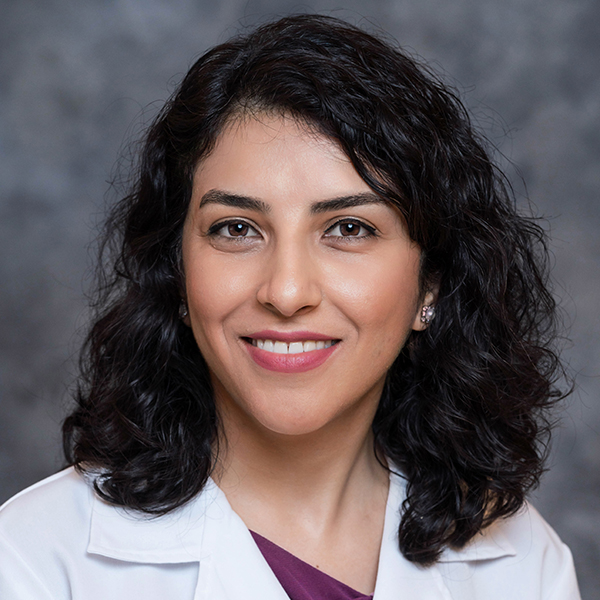
Manizhe Eslami-Amirabadi, MD
Behavioral Neurology Fellowmanizhe.eslamiamirabadi (at) ucsf.edu
I have a longstanding interest in improving healthcare access and equity in healthcare. After I finished each step of my medical training in Iran, I worked in an underserved area of my country and learned about various cultures, dialects and languages as well as various belief systems. Moving to the US and living in Boston was another exceptional experience. These experiences made me curious about the neurobiological basis of ethics as well as its cultural relevance.
Brain function was one of the most fascinating parts of medicine for me and while training in neurology, I realized that I am especially interested in cognitive function including language and behavior. Ethical aspects of dementia as a disease and observation of its burden on the patients and their caregivers have been also an important motivation for me to pursue further training and research efforts in the field of neuroethics with hopes to help providing a more equitable care around the world by raising awareness about current disparities and gaps in health literacy and healthcare access.
I love poetry, literature and music. They help me enjoy and make sense of our complex world. I spend my spare time with them, friends, family, or nature! I also love art museums!
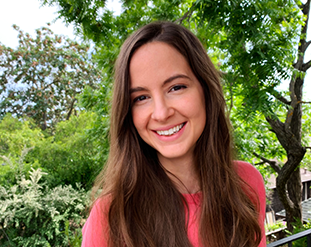
Valerie Black, PhD
Postdocvalerie.black (at) ucsf.edu
I’m a sociocultural and medical anthropologist (PhD UC Berkeley) whose research examines the relationships we form through and with the technologies we use. My work demonstrates how these relationships are not only reflections of ethical considerations, but are also active sites for addressing pressing ethical challenges. My research background focuses on AI in mental health care and the use of generative AI tools in workplaces.
As an ethnographer for the Decision Lab, I apply qualitative research methods—such as interviews and participant observation—to center the lived experiences of patients, caregivers, technologists, medical practitioners, and other stakeholders in the Lab’s array of research projects. I also draw on my background in disability studies to explore more inclusive approaches to neuroethics. The principle of “Nothing about us without us” guides my work.
In my free time, I do things like question the notion of free time, go on walks with my small, loud Pomeranian, and watch Netflix to the point where it asks, “Are you still watching?”
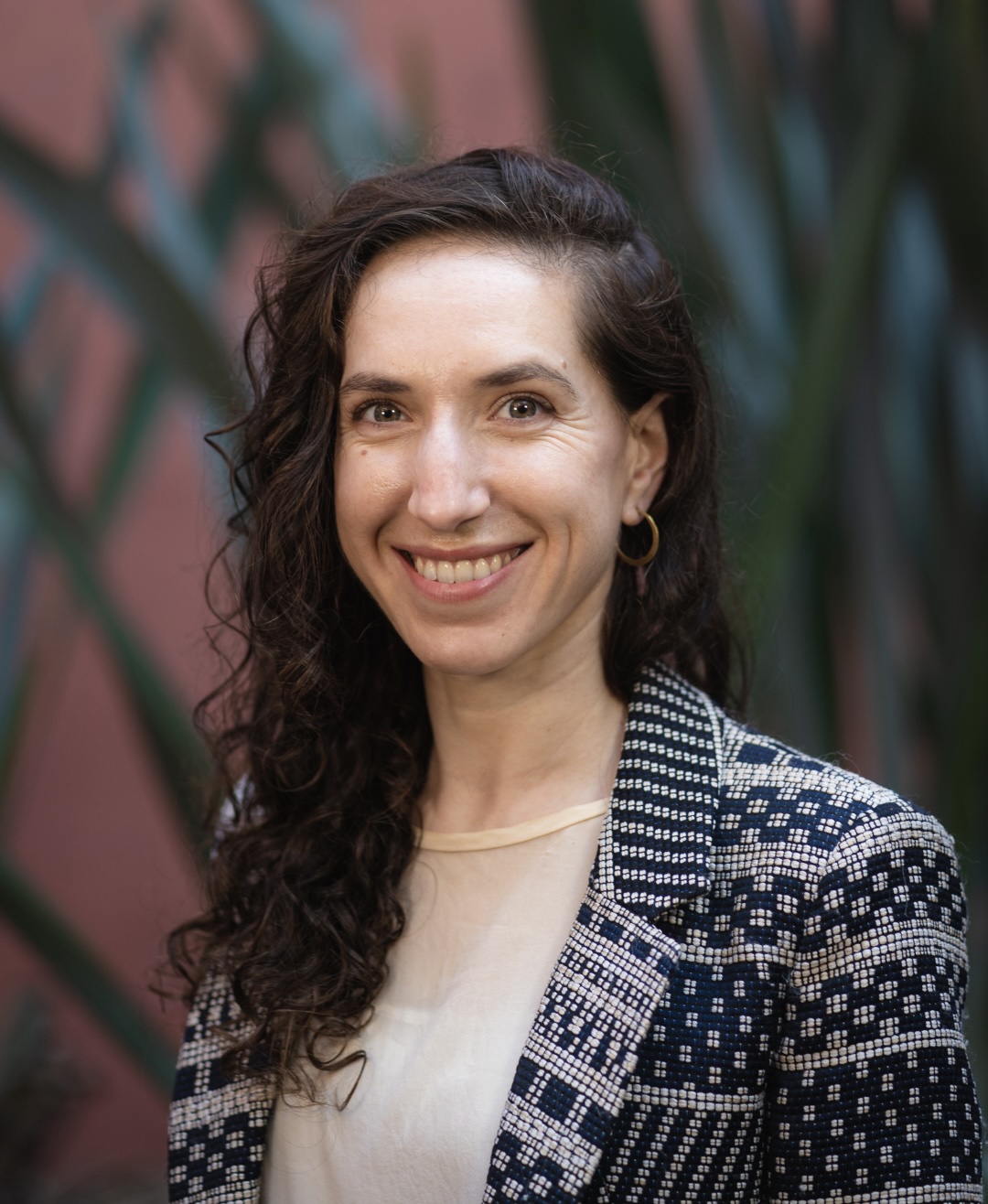
Juliana Friend, PhD
PostdocJuliana.friend (at) ucsf.edu
I am a medical anthropologist specializing in community-engaged qualitative research. As a postdoctoral fellow at the Decision Lab, I conduct interviews to improve care and support for people with dementia and their care partners. Prior to joining the Lab, I worked with Dr. Krista Harrison on research aiming to improve hospice and end-of-life care for people with dementia. My work is guided by the belief that understanding the ethical frameworks of patients is crucial to promoting ethical and equitable healthcare.
Drawing on expertise in digital health, my work has also aimed to amplify the perspectives of diverse constituents on how to leverage the benefits of emerging technologies while minimizing potential harms. Currently, I seek to promote the meaningful involvement of patients in AI governance in collaboration with UCSF’s Bioethics and Regulatory Engagement (BRE) program. My upcoming work bridges interests in dementia and AI, examining the use of eldercare robots to mitigate loneliness.
I feel incredibly lucky that I get to talk with people about their lives for my job. In my free time I love baking cakes, dancing Cuban salsa, and hiking with my dog Mazelle.
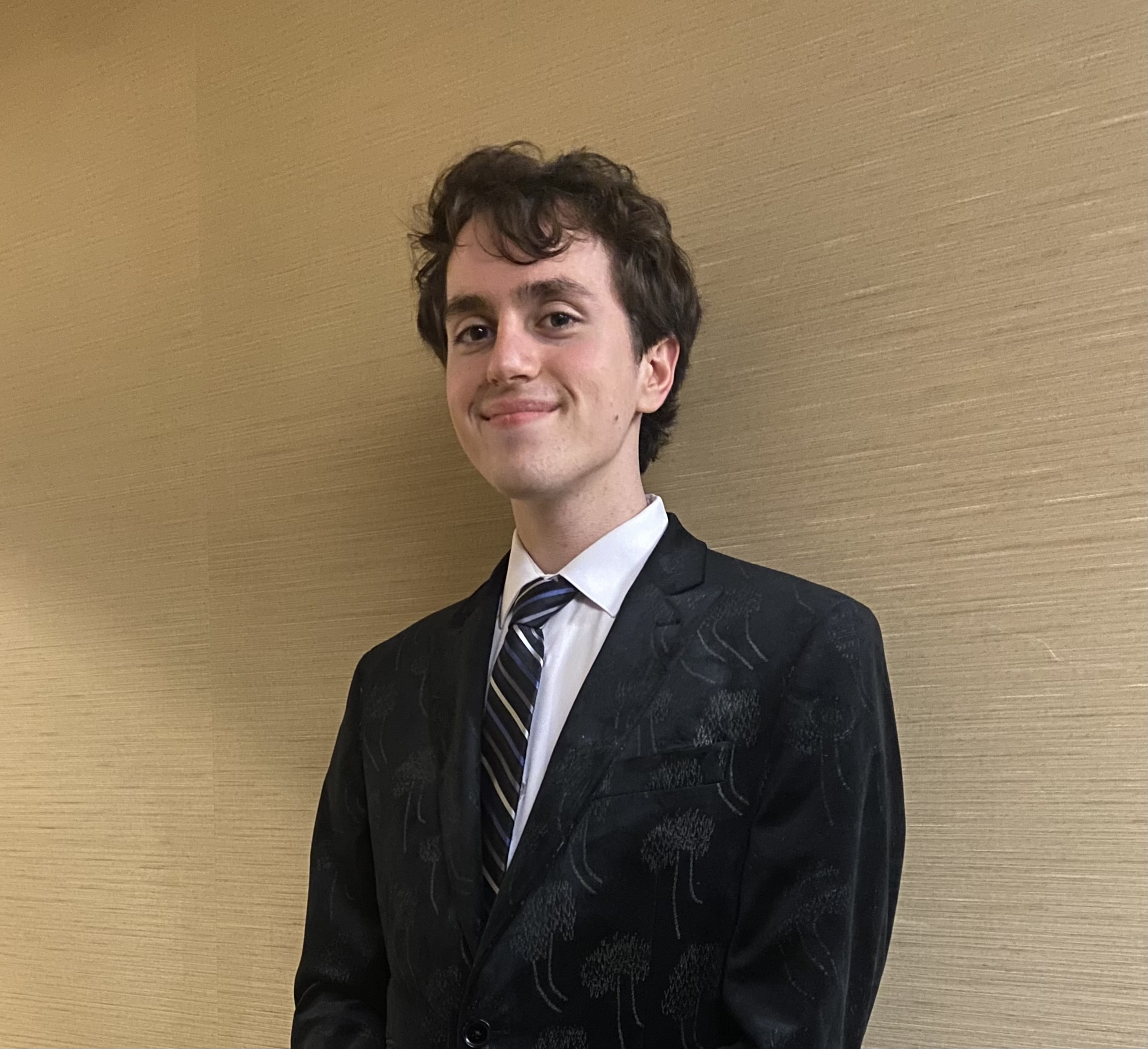
Marcus Piattoni
Research Coordinatormarcus.piattoni (at) ucsf.edu
I am a recent Loyola University Chicago graduate who majored in Neuroscience and minored in Bioethics.
My interest in Neuroethics began when I joined the Bioethics Bowl Team at Loyola University Chicago during my freshman year. Each week, the team would meet to discuss various bioethical cases in preparation for a yearly tournament. These meetings involved deep philosophical discussion, hours of research into various scientific and ethical concepts, and collaboration with team members to answer moral questions pertaining to each bioethical case. The cases we discussed ranged from the ethics of merging A.I. with the human brain to the ethicality of using an artificial uterus to grow the next generation of the human race. While I found nearly all the bioethical topics we discussed quite engaging, the ethical dilemmas surrounding emerging neurotechnology and surrogate decision-making particularly piqued my interest.
My eagerness to learn more about the ethics of neurotechnology and surrogate decision-making ultimately led me to the Decision Lab. Dr. Chiong’s research on neurotechnology, Dementia, and decision-making aligns well with my research interests, and I am grateful to have the opportunity to contribute to such important research.
In my spare time, I enjoy reading, collecting vintage books, thrifting, and playing video games.
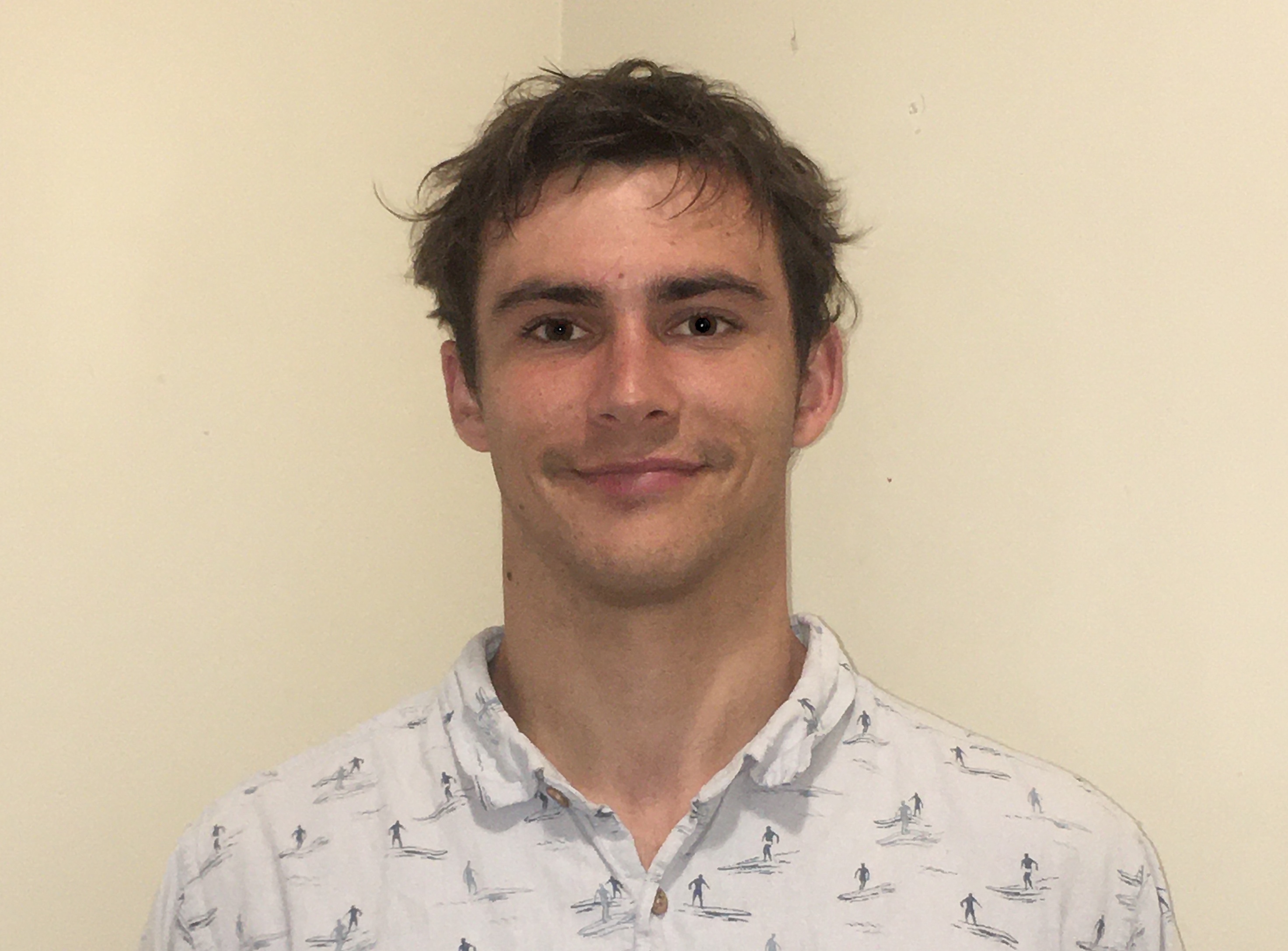
Noah Cryns
Research Coordinatornoah.cryns (at) ucsf.edu
As an undergraduate, I attended UC Berkeley, where I developed a fascination for the brain and behavior, prompting me to pursue a degree in neurobiology. At Berkeley, I studied in the lab of Dr. Linda Wilbrecht where I completed an honors thesis investigating adolescent exploration, risk-taking, and reward-seeking behaviors and their neurophysiological correlates. During this time, I developed a passion for research, particularly reward processing and decision making, and how the dysfunction of these processes is relevant to disease and addiction.
Experiences outside of academics have been instrumental in helping to refine my interests. For example, I work as a crisis counselor, assisting folks in getting through challenging moments in their lives. I also volunteered at the Alzheimer’s Services of the East Bay. I found interacting with and working to improve the quality of life for older individuals of all backgrounds to be critical and fulfilling, and I resolved to fuse this meaningful work with my passion for research. I became particularly interested in studying dementia, as this topic is personal to me, and there is still so much to understand about different dementias.
I am extremely excited to be working as a clinical research coordinator in both the Decision Lab and the lab of Dr. David Perry. The research conducted by these groups integrates my interests in decision making, reward processing, and neurodegenerative disease and allows me to contribute to research that will improve the diagnostic accuracy of dementia and allow for effective treatment. I look forward to learning more about this complex disease and hope our work can help patients and their loved ones to cope with its often debilitating effects. In my spare time, I enjoy surfing, playing basketball, playing soccer, running and music.
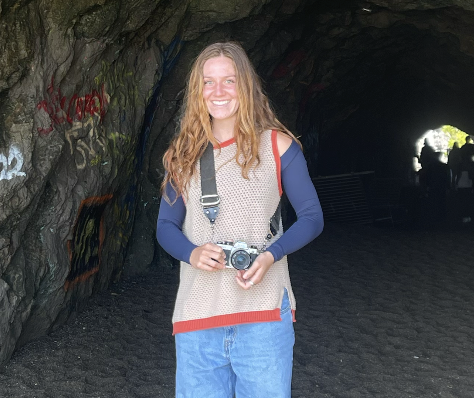
Maya Hunt
Assistant Clinical Research Coordinatormaya.hunt (at) ucsf.edu
I am a recent graduate of Santa Clara University, where I majored in Neuroscience with an emphasis on Applied Ethics. Early in my academic career at SCU, I took a wide range of courses– from Western Philosophy and Informal Logic to Neuroethics. I became deeply interested in understanding the root of the “why” behind human behavior and thought. Neuroscience felt like the right path to satisfy my existing curiosities and promote further intellectual growth. I soon developed a strong interest in the ethical considerations required to navigate the relationship between technology and the brain.
Through various coursework, I explored the ethical and neurological implications of emerging neurotechnologies. I became fascinated by how these innovations can empower, complicate, and challenge our approach to mental health, neurological disorders, and aging.
During my final quarter, I worked with an older individual experiencing memory impairments, administering psychological tests and managing clinical data. This hands-on experience was deeply fulfilling and insightful. After graduation, I worked for a longevity start-up, where I had the opportunity to create a comprehensive framework for guiding ethical decision-making in neuropsychological testing and treatment. These back-to-back experiences reinforced my commitment to understanding the nuances of technology in healthcare and clinical practice with empathy.
I am grateful for this opportunity to broaden my learning and expand my research experience.
In my spare time, I enjoy yoga, photography, and hiking.
students
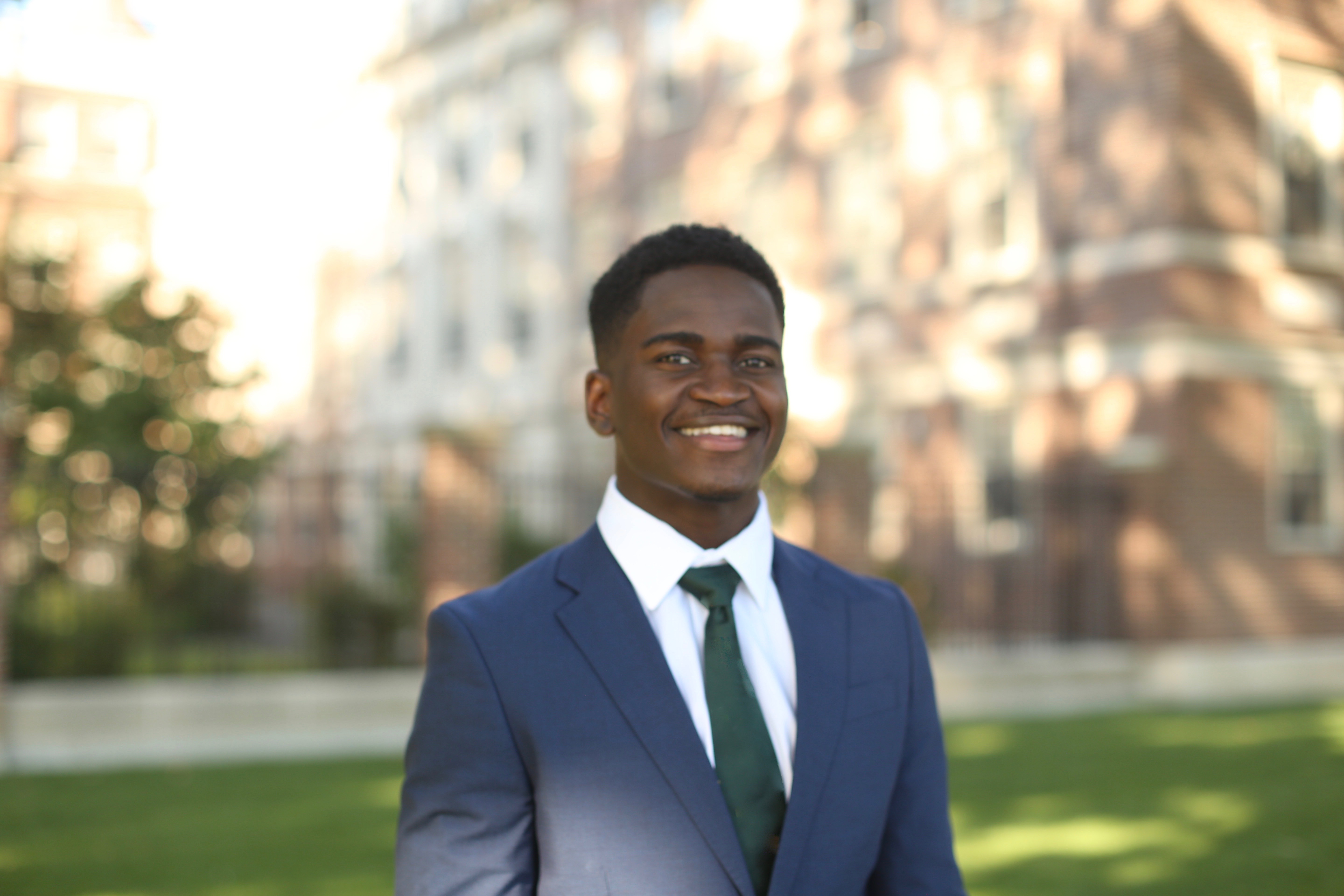
Abraham Dada
Medical StudentAbrahan.Dada (at) ucsf.edu
I am a medical student at the University of Califonria, San Francisco. After working at Dreem Health, a neurotech company expanding access to sleep care, I was eager to join the Decision Lab and understand public reception to neuro innovation. My contributions to our Neuroethics Survey Project seek to outline how race, ethnicty, and rurality influence beliefs about therapeutic implanated neural devices. Previously, I’ve explored social cognition, dementia, and I hope to pursue further research in neural interfaces at UCSF.
I recieved my B.A. in Neuroscience with a minor in Social Anthropology from Harvard Univeristy. Determined to bridge the slow, yet insightful practices of research with the rapid, socially impactful capital of investing, I interned at BrainMind, a community of neuroscientists, investors, philathropists, and entrepreneurs looking to bring socially-impactful neuro innovatios to market, during college. While at BrainMind, I devoted my time to developing its flagship, Neuroethics Advisory Commitee. Convening policymakers, academics, entrepreneurs, and investors we sought to challenge this multidisplincary group to rethink how we sustainably integrate ethics into neuro innovation. Outside of neurotech, ethics, and medicine, I enjoy working out, and playing guitar and basketball.
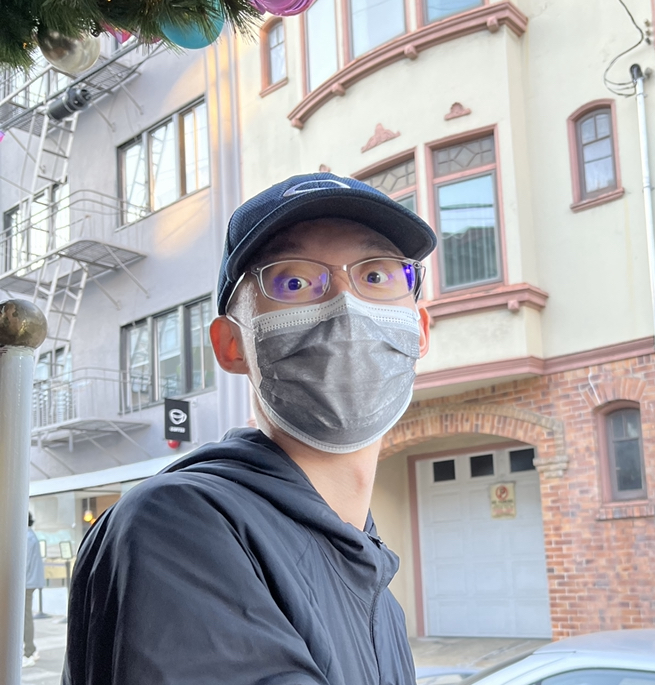
Chenyu Wang
Graduate Studentchenyu.wang2 (at) ucsf.edu
I am a graduate student at the University of California, San Francisco in Health Data Science. I received my B.S. in Statistics from the University of British Columbia. I am interested in using task-based functional MRI, online population-based methods, and computational behavioral modeling to investigate the neural bases of decision-making in the aging brain, focusing on how brain systems involved in financial and medical decisions are influenced by health and disease. I would be honored to learn from the accomplished team of researchers and contribute to our lab’s success. Outside of research, I enjoy doing sports and watching YouTube.
affiliate members
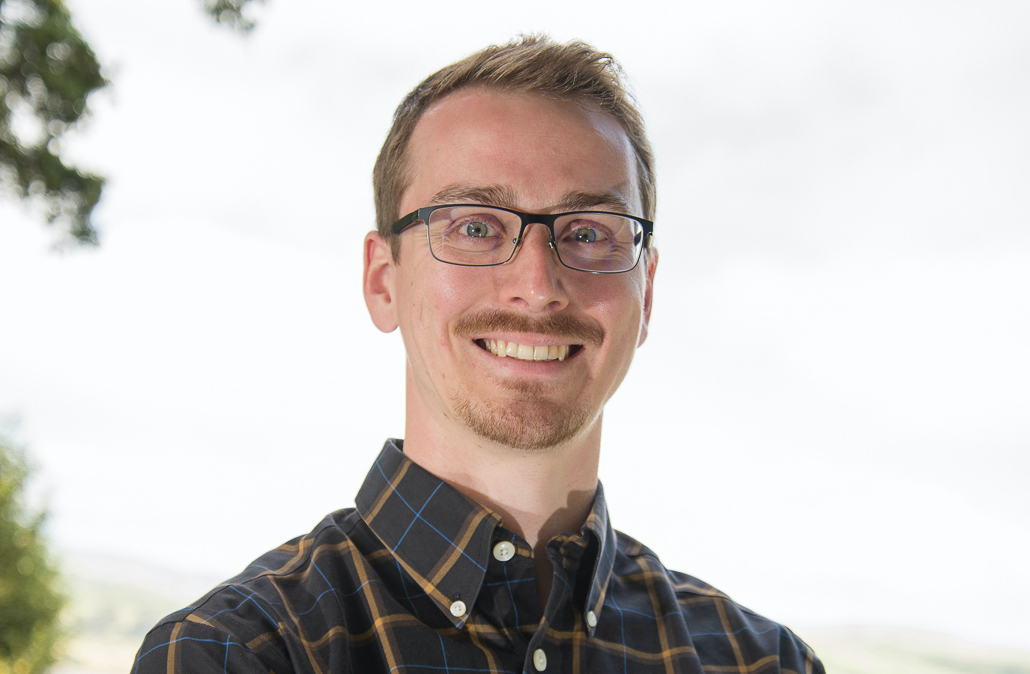
Colin Hoy, PhD
Postdoccolin.hoy (at) ucsf.edu
https://profiles.ucsf.edu/colin.hoy
Scholar Citations
I’m a neuroscientist and postdoctoral scholar in the UCSF Movement Disorders and Neuromodulation Center studying motivation in Parkinson’s disease with Drs. Simon Little and Phil Starr and neuroethics here in the Decision Lab.
In the Little and Starr Labs, our group aims to treat motor and nonmotor (e.g., sleep, cognition, emotion) deficits in patients with Parkinson’s disease using neurosurgically implanted deep brain stimulation (DBS) devices. My main research project focuses on understanding apathy and impulsivity symptoms in these patients by (1) measuring goal-directed and habitual decision making with computational reinforcement learning models; (2) mapping these cognitive processes to neural activity using chronic invasive brain recordings; and (3) modulating these neural circuits using dopaminergic medications and DBS.
In the Decision Lab, I’m studying bioethics to better understand the ethical, legal, and social implications of neurotechnology. For example, if brain stimulation can alter motivation or other aspects of one’s personality and identity, how should we deploy and regulate these treatments? I hope that combining neuroethics with my basic and clinical neuroscience research will help inform guidelines for the responsible use of neurotechnology.
I graduated in 2012 from Hendrix College with a BA in Neuroscience before spending two years as a postbaccalaureate researcher at the National Institute of Mental Health working on functional MRI methods. In 2021, I graduated from UC Berkeley with a PhD in Neuroscience in which I studied cognitive control using intracranial brain recordings from epilepsy patients. Outside of the lab, I enjoy playing ultimate frisbee, hiking, kayaking, and camping.
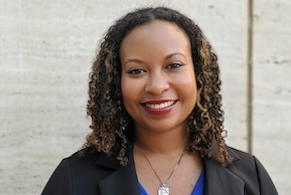
Ashley Jackson
Research Coordinatorashley.jackson3 (at) ucsf.edu
I am transitioning from a former career as a Ballet dancer to a field of medicine, science, and groundbreaking clinical research. I graduated Magna Cum Laude with a Performing Arts Degree in the Liberal Education for Arts Professionals program at Saint Mary’s College of California. Among several extracurricular activities, I also enjoyed being a part of the Phi Theta Kappa Honor Society and the Alpha Gamma Sigma Honor Society.
While focusing on my artistry as a ballerina, I enjoyed traveling the world and experiencing unique cultures. In my dance career, I was awarded the Princess Grace Award, a Congressional Black Caucus Foundation’s Performing Arts Medal, and the Chris Hellman Award, among other newspaper and magazine features. While I appreciate and value my time in the dance world, I always knew that I would like to go into medicine one day.
Compassion for our elderly with dementia is a value that is essential in society, so I am incredibly interested in researching and assisting with projects that enhance their quality of life. This is one of many reasons I believe in and value the research at the UCSF Memory and Aging Center.
In my spare time, I enjoy swimming, hiking, reading, and Pilates.
alumni
previously: Undergraduate Research Assistant
now: Resident Physician, UCLA Department of Surgery
http://surgery.ucla.edu/casit-meet-our-team#huang
previously: Medical Student
now: Associate Physician, Brigham and Women's Hospital Department of Pulmonary and Critical Care
https://connects.catalyst.harvard.edu/Profiles/display/Person/139292
previously: Research Coordinator, then Medical Student
now: Clinical Instructor, UCSF Department of Medicine
https://profiles.ucsf.edu/alex.beagle
previously: Research Coordinator
now: Graduate Student, UCSD Department of Cognitive Science
https://scholar.google.com/citations?user=WmnfOmUAAAAJ&hl=en
previously: Research Coordinator
now: Resident Physician, UCSF Neurology
https://www.linkedin.com/in/azahir1
previously: Medical Student
now: Resident Physician, Boston Children's Hospital Pediatrics/Anesthesia
https://www.linkedin.com/in/julia-heunis-a509256a
previously: Research Coordinator
now: Intern, UCSF Benioff Children's Hospital Oakland
previously: Research Coordinator
now: Graduate Student, UCSD Rady School of Management
https://www.linkedin.com/in/heather-romero-kornblum-810bab15a
previously: Research Coordinator
now: Legal Advocate, Positive Health Center
previously: Research Coordinator
now: Medical Student, UCLA School of Medicine
previously: Research Coordinator
now: Medical Student, Mayo Clinic Alix School of Medicine
previously: Student Intern
now: Registered Nurse Case Manager, Stanford Health Care
previously: Medical Student
now: Resident Physician, Stanford Department of Neurology
previously: Medical Student
now: Resident Physician, Mass General Brigham Neurology Residency
previously: Research Coordinator
now: CTO and Co-Founder, Radiata
https://radiata.ai/
previously: Student Intern
now: PA Student, Thomas Jefferson University
previously: Student Intern
now: Medical Student, Yale School of Medicine
previously: Medical Student
now: Intern, UCSF; Resident Physician, UCSF Department of Neurology
previously: Behavioral Neurology Fellow
now: Assistant Professor of Neurology, Boston University
https://www.bumc.bu.edu/neurology/profile/steven-lenio-md/
previously: Research Coordinator
now: Clinical Ethics Fellow, Sutter Health
https://www.sutterhealth.org/services/bioethics/bioethics-team
previously: Postdoc
now: Independent Researcher
previously: Associate Specialist
now: Graduate Student, Northern Arizona University College of Social and Behavioral Sciences
previously: Epilepsy Fellow
now: Assistant Professor, University of Colorado Department of Neurology
previously: Postdoc
now: Assistant Professor, University of San Francisco Department of Neuroscience
https://www.usfca.edu/faculty/narayan-sankaran
previously: Research Coordinator
now: Graduate Student, UCLA Fielding School of Public Health
previously: Postdoc
now: Postdoc, University of Poitiers
collaborators
Assistant Professor, Institute for Health Policy Studies
https://profiles.ucsf.edu/alissa.bernstein
Professor and Chair, UCSF Department of Neurological Surgery
http://changlab.ucsf.edu/
Professor, UCSF Institute for Health Policy Studies
https://profiles.ucsf.edu/dan.dohan
Associate Professor, UCSF Division of Hospital Medicine and Department of Social and Behavioral Sciences
https://profiles.ucsf.edu/elizabeth.dzeng
Associate Professor, University of Pennsylvania Departments of Neurology and Physical Medicine & Rehabilitation
https://www.med.upenn.edu/lcns/people.html
Executive Director, UCSF/UC Law SF Consortium on Law, Science & Health Policy
https://www.uclawsf.edu/people/sarah-hooper/
Associate Professor, UC Berkeley Haas School of Business and Helen Wills Neuroscience Institute
http://neuroecon.berkeley.edu/
Associate Professor, UCSF Institute for Health and Aging
https://emancipatorysciences.ucsf.edu/people/jennifer-james-phd-ms-msw
Associate Professor, UC Riverside Department of Philosophy
https://profiles.ucr.edu/app/home/profile/jaworska
Assistant Professor, University of Wisconsin Department of Neurology
https://neurology.wisc.edu/people/ketchum-frederick/
Senior Investigator, NIH Department of Bioethics
http://mainsite.scottkimbioethics.org/
Associate Professor, UCSF Memory and Aging Center
https://profiles.ucsf.edu/katherine.possin
Division Chief and Associate Professor, UCSF Epilepsy Center
https://profiles.ucsf.edu/vikram.rao
Assistant Professor, University of Washington Department of American Ethnic Studies
https://aes.washington.edu/people/oliver-rollins
Professor, UCSF Department of Neurological Surgery; Co-Director, UCSF Surgical Movement Disorders Clinic
https://starrlab.ucsf.edu/
Assistant Professor, Rutgers University Department of Neurology and Brain Health Institute
https://www.stileslab.com/
 Decision Lab
Decision Lab